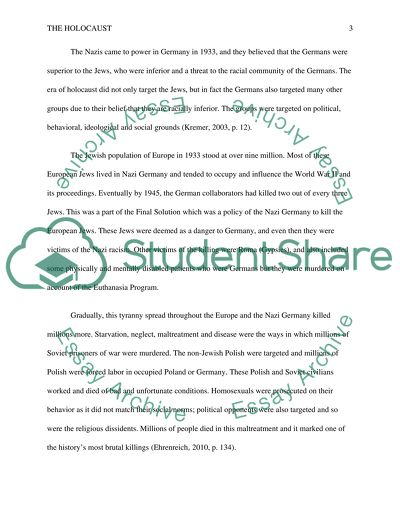Cite this document
(The Holocaust Essay Example | Topics and Well Written Essays - 2750 words, n.d.)
The Holocaust Essay Example | Topics and Well Written Essays - 2750 words. https://studentshare.org/history/1612846-is-it-possible-to-overcome-the-holocaust-discuss-with-reference-to-the-respective-responses-of-both-jean-amery-and-primo-levi
The Holocaust Essay Example | Topics and Well Written Essays - 2750 words. https://studentshare.org/history/1612846-is-it-possible-to-overcome-the-holocaust-discuss-with-reference-to-the-respective-responses-of-both-jean-amery-and-primo-levi
(The Holocaust Essay Example | Topics and Well Written Essays - 2750 Words)
The Holocaust Essay Example | Topics and Well Written Essays - 2750 Words. https://studentshare.org/history/1612846-is-it-possible-to-overcome-the-holocaust-discuss-with-reference-to-the-respective-responses-of-both-jean-amery-and-primo-levi.
The Holocaust Essay Example | Topics and Well Written Essays - 2750 Words. https://studentshare.org/history/1612846-is-it-possible-to-overcome-the-holocaust-discuss-with-reference-to-the-respective-responses-of-both-jean-amery-and-primo-levi.
“The Holocaust Essay Example | Topics and Well Written Essays - 2750 Words”. https://studentshare.org/history/1612846-is-it-possible-to-overcome-the-holocaust-discuss-with-reference-to-the-respective-responses-of-both-jean-amery-and-primo-levi.


